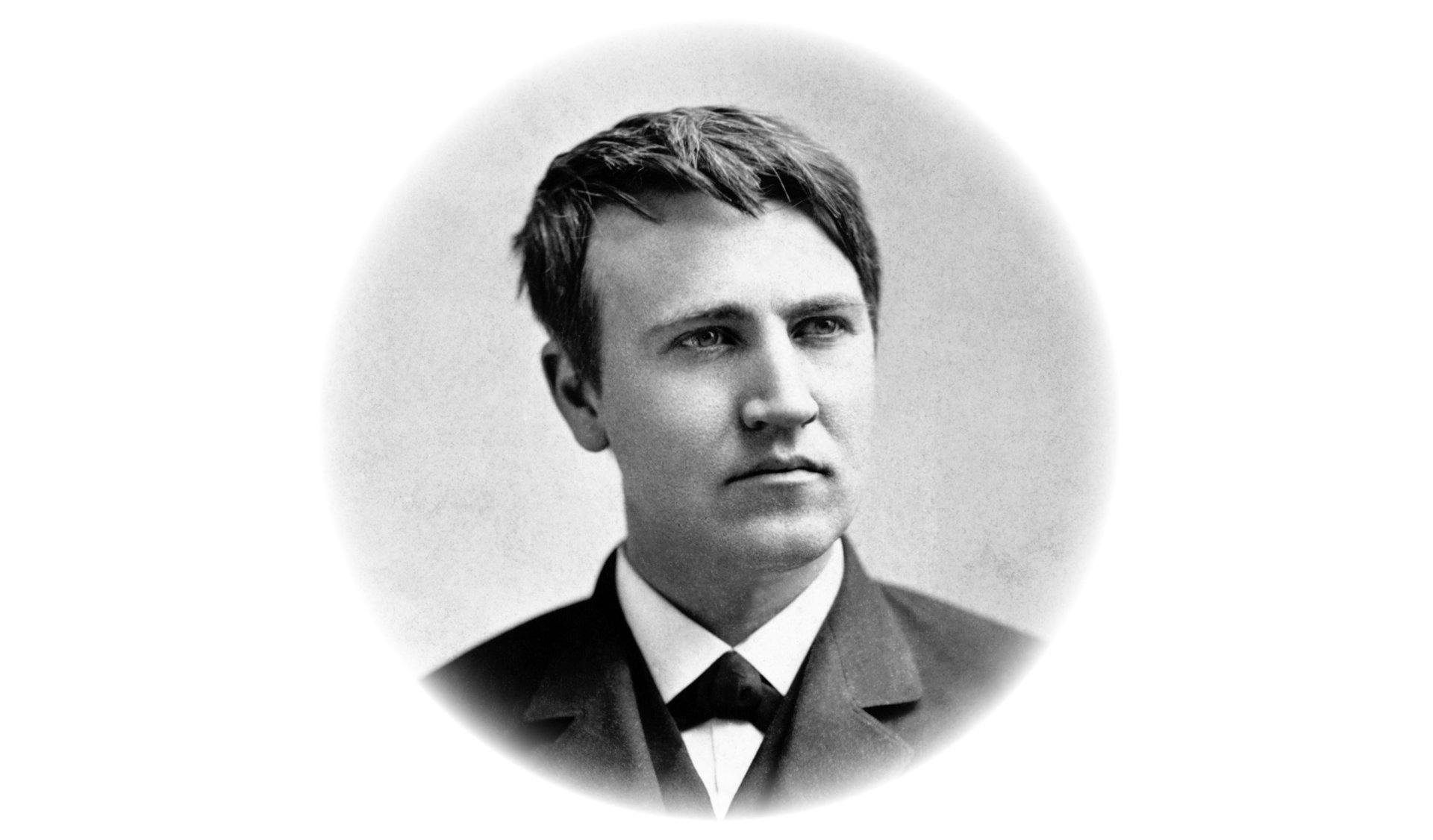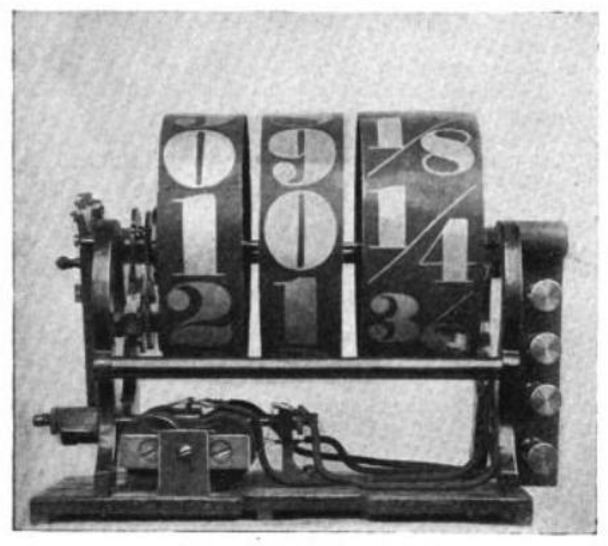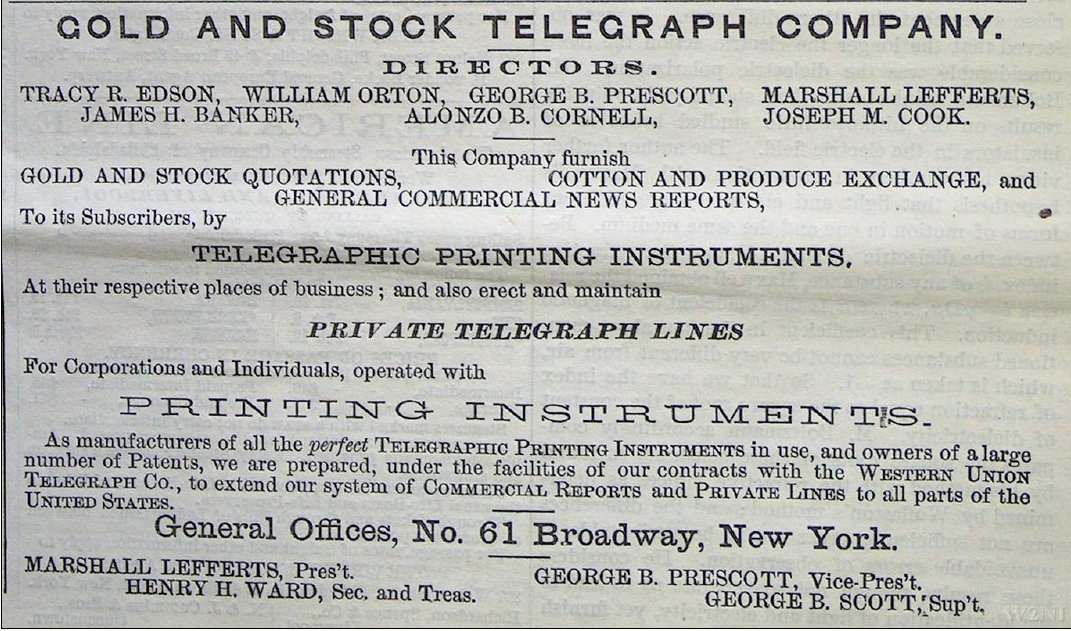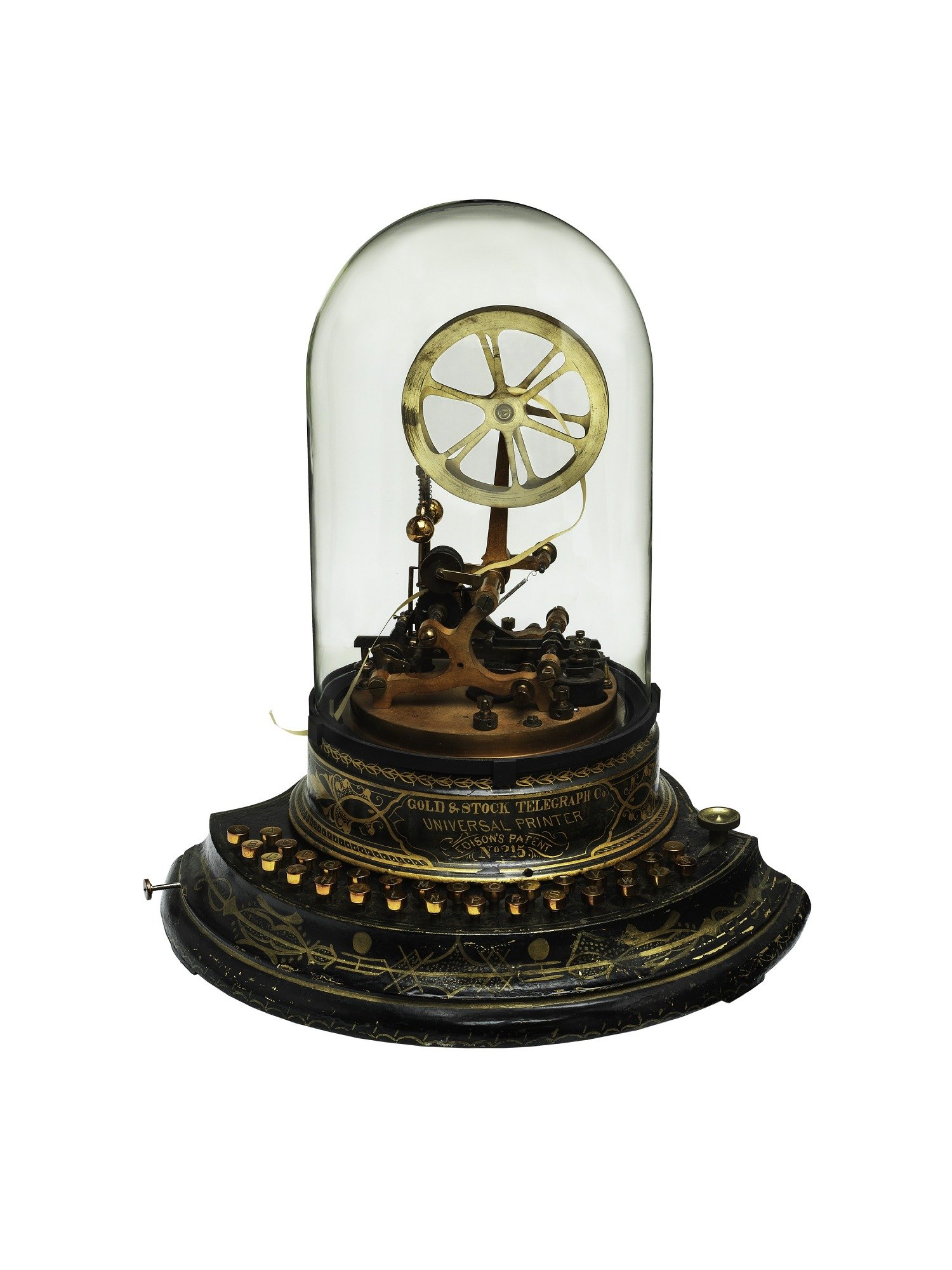Thread
If you're a self-taught developer who dreams of having your own subscription tech company to give you financial freedom—or maybe you've got that company and dream of selling it to pursue big ideas— you can look to none other than Thomas Edison for inspiration.
Let's start from the beginning. Thomas Edison was a telegraph operator.
Early telegraph operators in the mid-1800s were usually self-taught, which meant that ambitious young men and women from even the furthest reaches of the US could rise up.
Early telegraph operators in the mid-1800s were usually self-taught, which meant that ambitious young men and women from even the furthest reaches of the US could rise up.
Telegraph operators would start working part-time. Interviews simply consisted of sitting down at a wire and seeing if you could transcribe all of the Morse Code coming in.
The fastest operators would quickly get promoted from rural outposts to bigger cities. Edison was one.
The fastest operators would quickly get promoted from rural outposts to bigger cities. Edison was one.
Edison worked as a telegraph operator throughout the country, eventually landing at a prestigious telegraph office, Western Union in Boston.
But like many self-taught developers, he was ambitious and hungry for more.
But like many self-taught developers, he was ambitious and hungry for more.
In what should go down in the annals of tech rage quits, Thomas Edison, age 21, took out an ad in a publication, The Telegrapher, announcing that he had quit his job at Western Union and would be devoting his time to his own inventions.
He had no money and no patents.
He had no money and no patents.
The hottest niche in businesses built on the telegraph in the 1860s was stock tickers. These enabled businesses to get immediate information about stock prices directly into their own offices almost instantaneously—a revolution.
Edison set about making his own stock ticker.
Edison set about making his own stock ticker.
He built his own ticker... but it was complicated, and his backers pulled out.
He went to upstate NY to do a test... and the test failed, likely due to bad telegraph lines.
He went back to Boston and spent all of his money on a ticket to New York.
He went to upstate NY to do a test... and the test failed, likely due to bad telegraph lines.
He went back to Boston and spent all of his money on a ticket to New York.
Edison got to NYC, and through contacts, was allowed to sleep on the floor of the battery room of the Gold Indicator Company, a ticker company that sat above the New York Gold Exchange.
He had no money and no job, so he spent his time figuring out how their machines worked.
He had no money and no job, so he spent his time figuring out how their machines worked.
Edison happened to be hanging around one day when one of the machines made a weird noise and then stopped working.
In modern terms: downtime.
The company's 300 customers, mostly brokerages, panicked, and sent their messenger boys to the Exchange figure out what happened.
In modern terms: downtime.
The company's 300 customers, mostly brokerages, panicked, and sent their messenger boys to the Exchange figure out what happened.
The room was quickly full of people shouting and clamoring to see what was wrong.
Edison walked over and figured it out, based on his past tinkering.
The boss then showed up and impatiently demand that it be fixed immediately. He looked at his employee, who had no answers.
Edison walked over and figured it out, based on his past tinkering.
The boss then showed up and impatiently demand that it be fixed immediately. He looked at his employee, who had no answers.
Edison piped up that he knew the cause—a spring had fallen out and gotten jammed—and the boss told him to "Fix it! Fix it! Be quick!"
(If you've ever had a crowd of people around your desk because a website was down, you can appreciate the situation Edison was in.)
(If you've ever had a crowd of people around your desk because a website was down, you can appreciate the situation Edison was in.)
Edison went to the boss the following day to make suggestions on how to improve the machine so it wouldn't break down again.
The boss was impressed, and offered the broke, unemployed Edison a job as head of the machines for a $3,600/year salary -- or $82,000 today.
The boss was impressed, and offered the broke, unemployed Edison a job as head of the machines for a $3,600/year salary -- or $82,000 today.
That generous salary gave Edison to start his own company when his employer merged with another company shortly thereafter.
He and an engineer co-worker he'd met at the gold ticker company co-founded a company and started selling telegraph equipment and wires to businesses.
He and an engineer co-worker he'd met at the gold ticker company co-founded a company and started selling telegraph equipment and wires to businesses.
They also started selling their own stock ticker, but theirs had several key differences vs competitors:
- Their machine only used one telegraph wire rather than three
- They sold to importers and offered silver and gold prices only, which made it cheaper than full stock ticker
- Their machine only used one telegraph wire rather than three
- They sold to importers and offered silver and gold prices only, which made it cheaper than full stock ticker
(That hits two timeless business lessons for indie software businesses that are still relevant today: if you save customers money, they'll switch quickly, and find an underserved niche that wants something specific)
Edison's first company was then acquired by his previous employer, now called the Gold and Stock Telegraph Company.
The company president offered him a deal: Edison could do research and the company would commercialize his inventions. Sort of like an entrepreneur-in-residence.
The company president offered him a deal: Edison could do research and the company would commercialize his inventions. Sort of like an entrepreneur-in-residence.
Edison then invented an improved stock ticker that could be reset from a central office rather than having to send out engineers to the customers to fix them.
This caught management's attention.
This caught management's attention.
The company offered to buy the patent for Edison's improved ticker.
Edison thought to himself he'd accept $5,000, and no less than $3,500, but was embarrassed to ask for so much. He told the boss to name his price.
The answer?
$40,000 -- about a million dollars today.
Edison thought to himself he'd accept $5,000, and no less than $3,500, but was embarrassed to ask for so much. He told the boss to name his price.
The answer?
$40,000 -- about a million dollars today.
That windfall allowed Edison to set up his own workshop in New Jersey in 1874, and well, you probably know the history from there. Inventor of the phonograph, lightbulb, first electric utility, and so much more.
I came across this story as research for a new writing project on the history of subscription businesses.
I'm planning to write about Edison's gold/silver subscription biz, but the longer story didn't quite fit in, and it was too good not to share.
www.getrevue.co/profile/recurring
I'm planning to write about Edison's gold/silver subscription biz, but the longer story didn't quite fit in, and it was too good not to share.
www.getrevue.co/profile/recurring
There's a lot in Edison's story that today's devs might find inspiring:
1) He was a self-taught, and used his technical skills to move from a small-town to positions of prestige in a major city. (You might say Western Union was the Google of the mid-late 1870s.)
1) He was a self-taught, and used his technical skills to move from a small-town to positions of prestige in a major city. (You might say Western Union was the Google of the mid-late 1870s.)
2) He stacked the bricks: from full-time job as a telegraph operator => failed attempt to strike out on his own => better paid job as telegraph engineer => own successful small company => acquihired => EIR => life-changing acquisition => own big company
3) In his early days, he succeeded by improving *already existing* business models (stock ticker subscription services) and *already existing* inventions (stock tickers)
He sold better, cheaper versions to existing customers for existing products.
He sold better, cheaper versions to existing customers for existing products.
Again, apologies this is a thread, but I really didn't have anywhere else to put it, and had to share.
Sources:
- The Victorian Internet www.amazon.com/Victorian-Internet-Remarkable-Nineteenth-line/dp/162040592X
- Edison www.amazon.com/Edison-Edmund-Morris/dp/081299311X
- Edison, His Life and Inventions www.gutenberg.org/files/820/820.txt
- Photo sources in alt text
Sources:
- The Victorian Internet www.amazon.com/Victorian-Internet-Remarkable-Nineteenth-line/dp/162040592X
- Edison www.amazon.com/Edison-Edmund-Morris/dp/081299311X
- Edison, His Life and Inventions www.gutenberg.org/files/820/820.txt
- Photo sources in alt text





